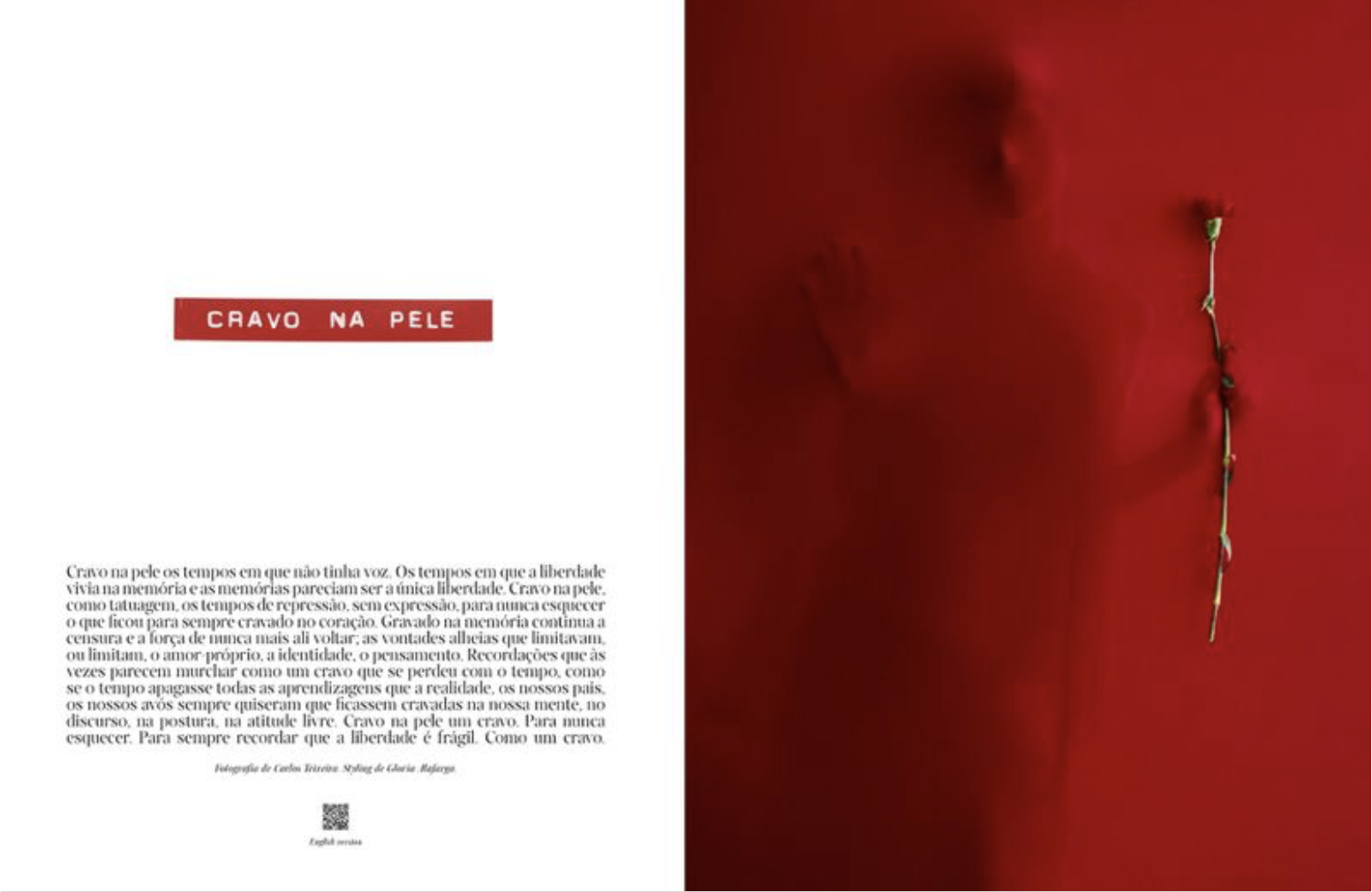Vogue Portugal's Memory of the 1974 Carnation Revolution Sent Anne to AI History Books
/Photographer Carlos Teixeira [IG] contributes a fashion story centered on model Stella Hägerstrand for Vogue Portugal’s April 2024 Memories issue. Gloria Alafarga styles the shoot paying homage to the carnation revolution (Revolução dos Cravos) that took place 50 years ago this April 25th [last Thursday], in Lisbon.
I was not aware of this story. As my Portuguese friends know — especially Carlos Teixeira, the photographer — Anne could really go off the rails here and write a 5000 word treatise.
Given this week’s Supreme Court hearings concerning Trump’s attempt to overthrow our own government on Jan. 6, 2021, I am fascinated with this story about Portugal.
Four of our Supreme Court Justices scared the wits out of me this week, with their calm discussions about not wanting to hold Trump accountable in any way for his actions in trying to overthrow the Biden victory, as he has immunity as the president.
I’ve already learned that all did not go well a year later, with the rise of the Communists in Portugal. But I am inspired that Portugal did overcome its authoritarian past, and deal with the challenges of a post-authoritarian political society, while moving forward. The people in this video are so impressively articulate, including the soldiers.
I’m in serious need of inspiration this week between Trump and the crisis in Israel/Gaza now spilling across US university campuses. Always looking for how other people have successfully handled difficult situations, I will be watching more videos on how my Portuguese friends dealt with this conflict and transitioned to a place of orderly freedoms in their nation.
Lulu and I have had a real AI research romp in the last hour, asking very specific questions about the role of the Catholic Church in Portugal when this coup played out. There are days in America, when I truly feel they are running the place — definitely the Supreme Court. And they are stepping up big-time to get women in line in this country — not that we’re obeying them.
History of Revolução dos Cravos
The Carnation Revolution, known as the Revolução dos Cravos, occurred 50 years ago on April 25th, in Lisbon, Portugal. This peaceful military coup, named after the carnations placed in the barrels of soldiers' rifles, marked the end of the authoritarian Estado Novo regime that had ruled Portugal for nearly five decades.
A Bloodless Coup by Young Military Officers with Carnations in Their Guns
On that fateful day in 1974, the Armed Forces Movement led by young military officers and supported by civilians overthrew the dictatorship of Marcelo Caetano. The revolution was largely bloodless, with the people and the military joining forces in a display of unity against the oppressive government.
The Revolution Gave Independence to Portugal’s African Colonies
The Carnation Revolution brought about significant social, political, and economic changes in Portugal. It led to the establishment of democracy and the drafting of a new constitution. The revolution also granted independence to Portugal's African colonies and laid the foundations for a more open and progressive society.
This historic event is celebrated as a symbol of freedom, democracy, and solidarity. The images of red carnations blooming from the barrels of guns have become an enduring symbol of the peaceful revolution that transformed Portugal and inspired movements for change around the world.
Did the Catholic Church Support the Revolução dos Cravos?
The Catholic Church played a complex role in Portugal's Carnation Revolution 50 years ago. As an influential institution deeply intertwined with the authoritarian Estado Novo regime, the Church was initially hesitant to support the movement against the government. However, as popular discontent grew and the revolution gained momentum, some members of the clergy openly sided with the pro-democracy forces.
The Church's stance during the revolution was divided, reflecting broader societal divisions within Portugal at the time. While some priests and bishops courageously advocated for social justice and human rights, others aligned themselves with the existing power structures.
Ultimately, the Catholic Church in Portugal emerged from the Carnation Revolution as a more pluralistic and diverse institution, adapting to the new democratic era that followed the overthrow of the dictatorship.





















